Image
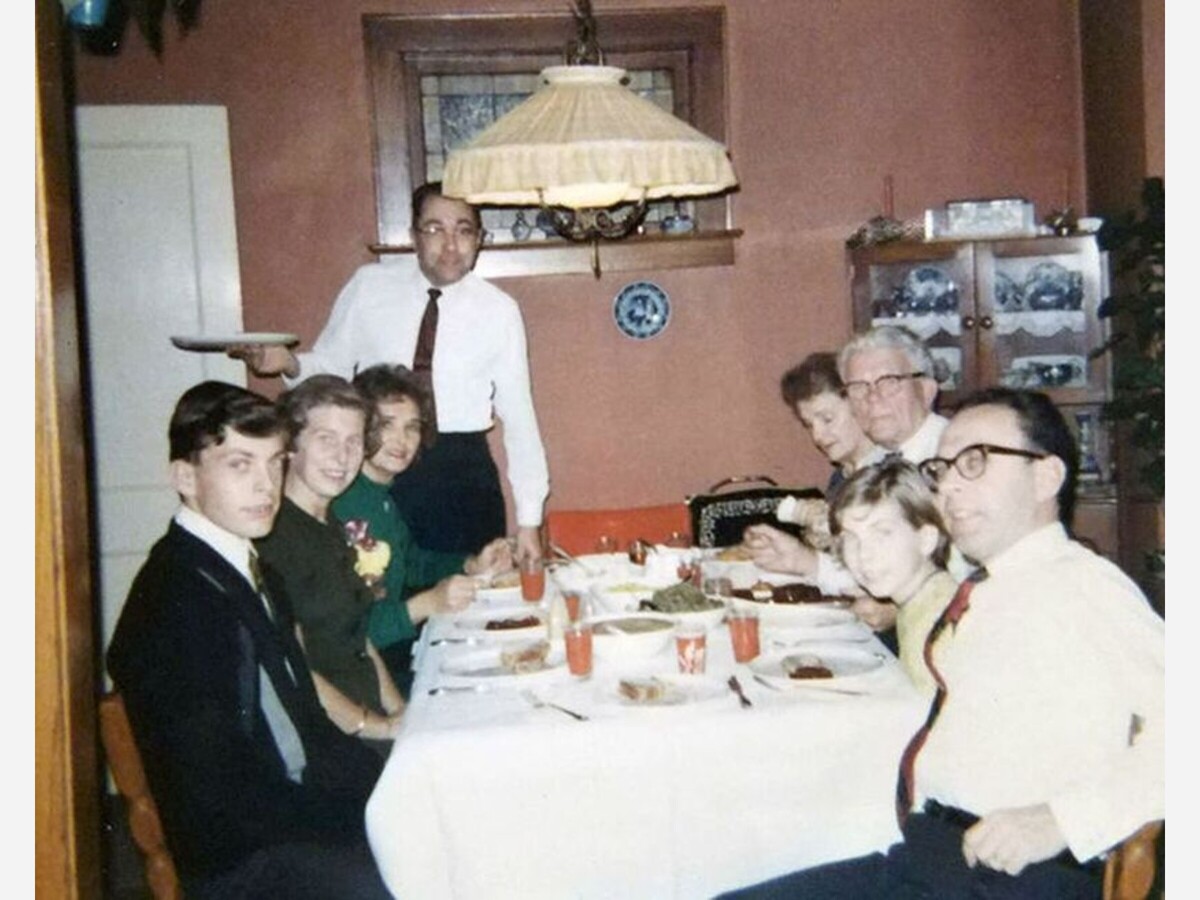

You may have learned in grade school (if you can remember) of the first Thanksgiving in the Plymouth Colony in October of 1621. That first Thanksgiving is generally accepted as the origin of a long-honored holiday.
Post-October of 1621, Thanksgiving was celebrated two more times in 1679 & 1696 while a smallpox epidemic devastated New England, and amidst the discovery of a plot against King William III, respectively.
But the national Thanksgiving holiday has an alternate history. One of confusion, date changes, and political controversy, that all began with a congressman from New Jersey.
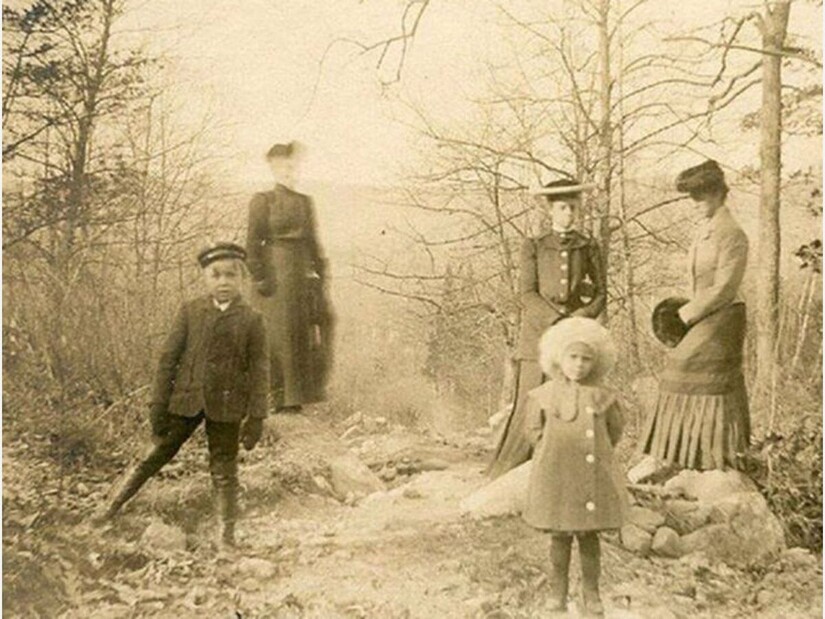 Early 1900s Thanksgiving in Morris County.
Early 1900s Thanksgiving in Morris County.The idea for a day of Thanksgiving, although altering throughout time, lasted the test of time and followed our country into its creation of the constitution of the United States.
However, it was not until September 25th of 1789 when a Congressional Representative from New Jersey, Elias Boudinot, requested then-President George Washington sign a proclamation for a “day of public thanksgiving.”
Elias Boudinot (1740-1821), an Elizabeth, NJ resident and lawyer practicing out of Newark, originally envisioned the holiday as a day of thanksgiving for our nation’s constitution.
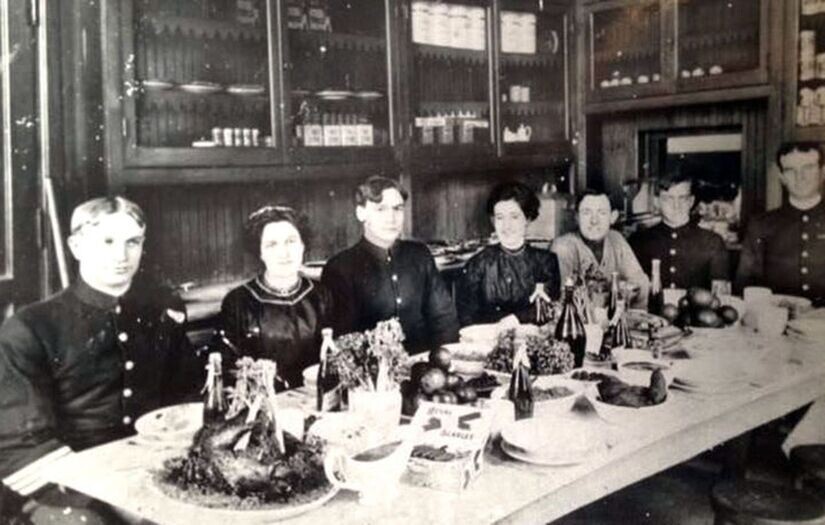 Thanksgiving in Sandy Hook, NJ, 1911. Courtesy of the Monmouth County Historical Association
Thanksgiving in Sandy Hook, NJ, 1911. Courtesy of the Monmouth County Historical AssociationThe original purpose for Boudinot’s idea of a day of thanksgiving mutated as it circulated the minds of congress.
Representative Thomas Tudor Tucker of South Carolina was one of a few critics of the proposed holiday.
Tucker argued it was neither the house nor the president's right to order when the people ought to give thanks, particularly for a constitution that had yet to be tested.
He also questioned the religious connotations of such a holiday stating that a day of thanksgiving and prayer is a religious matter that should be left to the states to decide.
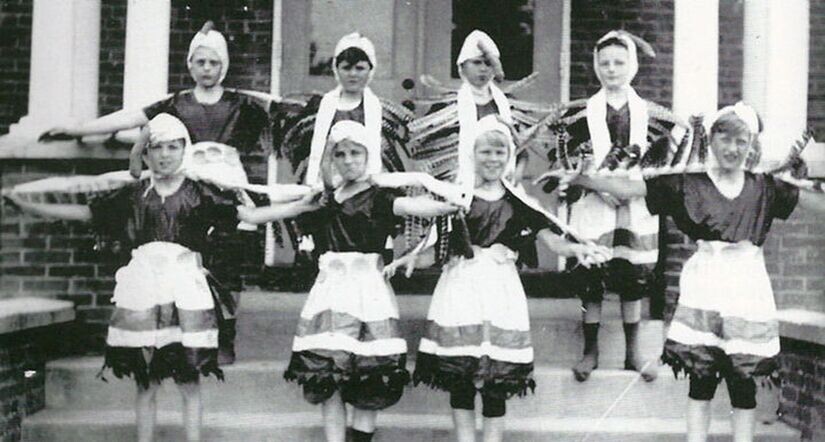 Thanksgiving in Linwood, NJ, 1938. Courtesy of the Linwood Historical Society
Thanksgiving in Linwood, NJ, 1938. Courtesy of the Linwood Historical SocietyThere was lasting contention between states with the idea of a northeastern holiday being forced upon the south.
Never less, on October 3rd of 1789, George Washington proclaimed a National Day of Thanksgiving be held, but instead of making it an order of law, Washington proclaimed the day as a recommendation to the states.
Surprisingly, Thomas Jefferson was not a fan of the holiday calling it a “monarchical practice." For most of the next century, Thanksgiving remained in effect a northeastern holiday. It was New Jersey Governor William Livingston who first enthusiastically endorsed the Thanksgiving holiday.
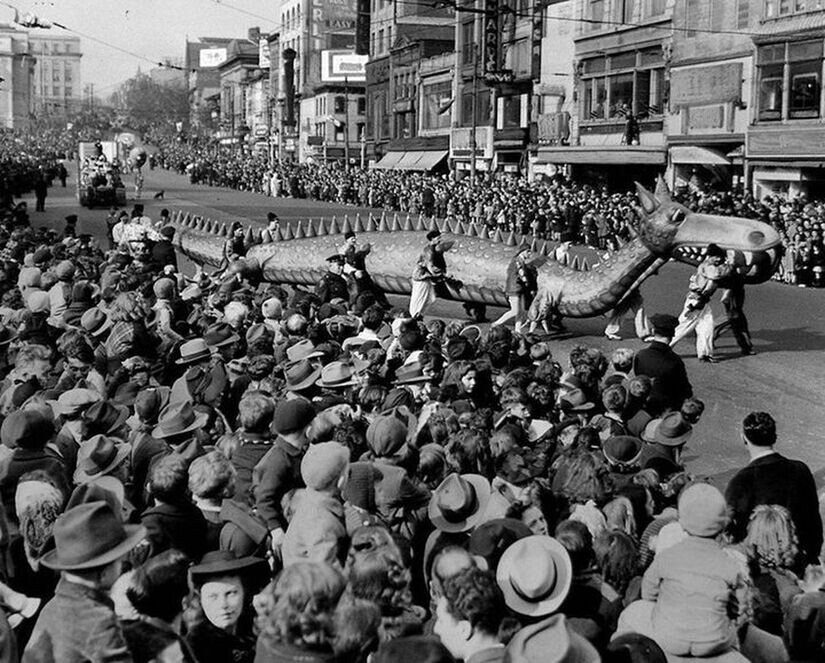 Thanksgiving Day Parade down Broad Street in Newark, 1941. Courtesy of Bobby Cole Photo Archives
Thanksgiving Day Parade down Broad Street in Newark, 1941. Courtesy of Bobby Cole Photo ArchivesIn 1861, New Jersey Governor Charles S. Olden changed the day of the Thanksgiving holiday to September 26, and only two years later in 1863, the date was changed once more to April 30th.
In 1865, President Abraham Lincoln declared the holiday to be celebrated on the last Thursday of November. However, New Jersey, for some reason, celebrated Thanksgiving that year on July 4th.
Then in 1906, President Theodore Roosevelt re-established the Thanksgiving holiday to be celebrated on the third Thursday of November. However, only 32 states agreed.
For years, the day Thanksgiving was celebrated depended on where you lived.
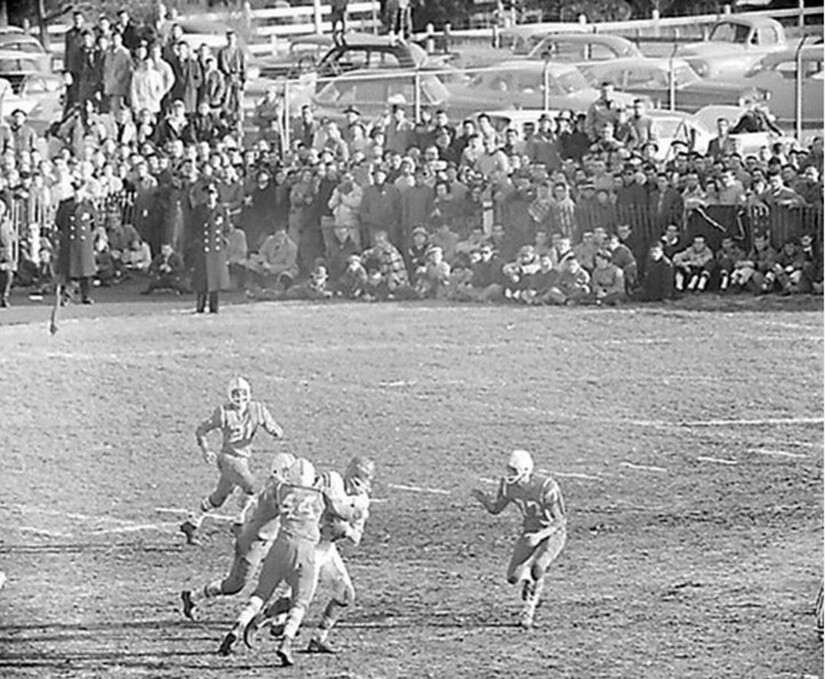 Thanksgiving Day football game in Morris County.
Thanksgiving Day football game in Morris County.It was in 1941 when the House passed a joint resolution declaring the last Thursday of November to be the legal Thanksgiving Day. The Senate, however, amended the resolution establishing the holiday as the fourth Thursday in November.
In the early 1900s, as NYC began its Macy’s Holiday Parade, Newark New Jersey began their own celebratory Thanksgiving Day Parade.
There is some contention over which parade began first, Newark’s or New York City’s. The earliest record of a Thanksgiving Day parade in NYC dates back to 1924, however, at the time it was technically Macy’s Holiday Parade.
In comparison, the first mention of a Thanksgiving Day parade was in Newark in 1931 hosted by Bamberger’s which was a subsidiary of Macy’s Department Stores.
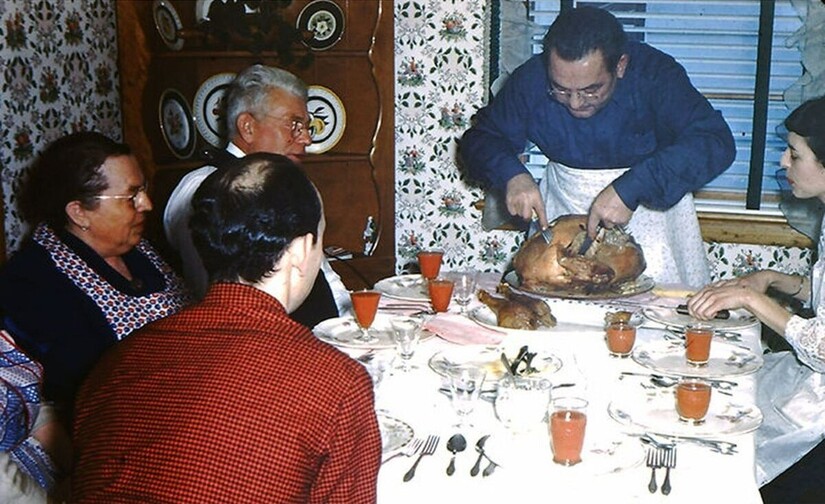 Thanksgiving in Union, NJ, 1954. Courtesy of Alex Czopek
Thanksgiving in Union, NJ, 1954. Courtesy of Alex CzopekBut ultimately, neither New Jersey nor New York can claim the title to the first Thanksgiving Day Parade, that honor goes to Philadelphia. In 1920, Gimbels department store and employees dressed in costume and paraded down streets the same year as Macy’s inaugural Christmas Day Parade.
Regardless of which city and state can claim the first Thanksgiving Day Parade, it is mutually agreed that it was a congressman from New Jersey who first planted the seed for a National Day of Thanksgiving.
So, this Thanksgiving Holiday, let’s be thankful for the state in which we live and remember that it was a fellow New Jerseyan who made the first step in the creation of a holiday the whole nation has come to adore as a national day of thanksgiving.
Our reporters will be dedicating time and resources to investigating the roadblocks to mental health accessibility in our town.
Donate to Morristown, NJs local mental health accessibility fund today!
 Scan or click to donate!
Scan or click to donate!*The 2022 Local News Fund is a program administered by the Local Media Foundation, a 501(c)(3) organization affiliated with the Local Media Association. The program’s purpose is to allow independent and family-owned news organizations to solicit tax-deductible donations from their communities for journalism projects focusing on critical local issues. Contributions to this program are tax-deductible to the full extent of U.S. law; please consult a tax advisor for details.